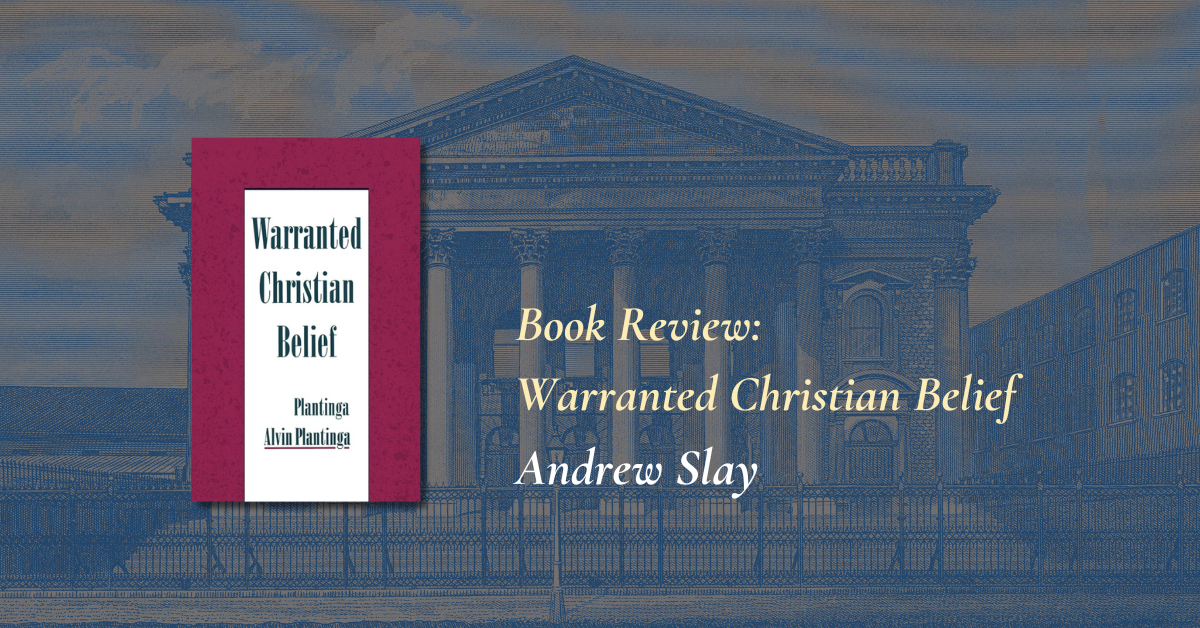Editor’s Note: This book review correlates with the book recommended by Dr. Tawa Anderson in our Q&A for Prospective PhDs Series. If you have not read Dr. Anderson’s article, you can find it here.
In Warranted Christian Belief, Alvin Plantinga argues that Christian belief in the triune God has warrant through the awakening and regeneration of the sensus divinitatis by the Holy Spirit’s internal work to produce faith. Plantinga’s goal is not to prove that Christianity is true. Instead, his aim is to demonstrate that a Christian can hold their beliefs rationally and with warrant without needing arguments to justify their validity. Therefore, he is focusing on the de jure, not the de facto, objection to Christian belief.
The book is divided into four sections. First, Plantinga argues against Kaufman, Hick, and Kant that there is indeed such a thing as Christian belief and that we can be rational and talk about God at the same time. Second, he dismantles classical foundationalism, held by Locke and Descartes, as a viable basis for defining justified true belief and distinguishes between de facto and de jure objections. The de jure objections question whether Christian belief is rational, even if it is true. Therefore, Plantinga states that the root of the de jure objection to Christian belief, especially from the Freud-Marx critique, is that religious belief is not produced by cognitive faculties functioning correctly and aimed at the truth, and thus, it lacks warrant.
Third, to answer this objection, Plantinga proposes the “Aquinas/Calvin” (A/C) model, which claims that God has put the knowledge of himself in each of us (sensus divinitatis). This knowledge about God is not necessarily based on perception. Perception can help increase one’s knowledge, but it does not create the knowledge of God. Thus, for Plantinga, knowledge of God is a priori and similar to memory beliefs in that it is properly basic and does not need an external argument for warrant. Yet, if every person has the sensus divinitatis and knowledge of God is properly basic, why are there so many people who reject Christianity? Plantinga reasons that failing to believe in God is a result of some dysfunction of the sensus divinitatis due to sin. The remedy to the problem of disbelief in God, comes from the Bible, internal testimony of the Holy Spirit, and faith, which all work together to reveal the knowledge of God both in our minds and on our hearts. This “extension” of the A/C model, which incorporates the Holy Spirit, the Bible, and faith, also explains how Christians can believe in the core doctrines of the faith (Trinity, incarnation, atonement, and resurrection).
After addressing some objections, such as religious experience, Plantinga concludes the book in part four by addressing five supposed “defeaters” of Christian belief: projection theories, historical Biblical criticism, postmodernism, pluralism, and the problem of evil. Despite these “defeaters,” Plantinga argues that none can prevent a Christian from having warrant for their faith in the God of the Bible if their belief is true.
One weakness of the argument is that it does not definitively prove that Christian belief is true. Plantinga’s whole aim is to demonstrate that Christian faith is rational and warranted if it is true. Thus, some may think this book is a waste of time because Plantinga’s argument means nothing if Christian belief is indeed false.
However, his argument is not a waste of time at all, because Plantinga’s argument clears away much debris for philosophers who have questioned the rationality of Christian belief since the Enlightenment. For these philosophers, even if Christianity were true, they argued it was not rational. They claimed that the only way someone could believe in God was through wishful thinking or if their cognitive faculties were not functioning properly. But, through Plantinga’s argument, he has silenced these critics, and their arguments now lack a foundation. Plantinga states, “This fact [that one can separate de jure from de facto objections] by itself invalidates an enormous amount of recent and contemporary atheology; for much of that atheology is devoted to de jure complaints that are allegedly independent of the de facto question. If my argument so far is right, though, there aren’t any sensible complaints of that sort” (191). The benefit of Warranted Christian Belief is that now, for philosophers and apologists, the question of whether Christian belief is rational, justified, and warranted if true is no longer a question they need to focus on, thanks to Plantinga’s work in epistemology.
Author
-

Andrew Slay serves as an Assistant Pastor and Director of Student and Family Discipleship at Westwood Baptist Church in Cleveland, TN. He is a graduate of Southeastern Baptist Theological Seminary with a Master of Arts in Intercultural Studies. He also holds a ThM from New Orleans Baptist Theological Seminary and is currently pursuing a PhD in Apologetics and Culture from NOBTS. He and his wife, Ashley, have three children, Graysen Elyse, Emersyn Leigh, and Judson Elliot.
View all postsRecent Posts




